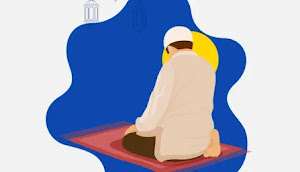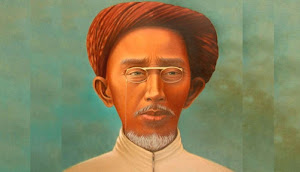
MALANG — The intellectualism of Kiai Ahmad Dahlan is a focal point in understanding the essence of Muhammadiyah actions. In contrast, some experts consider him a “man of action” due to the scarcity of his written works.
A member of the Muhammadiyah Council for Thought and Judgment Pradana Boy mentioned that. Kiai Ahmad Dahlan’s intellectualism shone through despite the scarcity of his written works. He was both a “Man of Thought” and a “Man of Action.” Implementing the teachings of the Qur’an, he reflected and pondered before taking action, showcasing his intellectual prowess.
“Kiai Ahmad Dahlan was praised as a prophetic social scientist by Moeslim Abdurrahman, considering his adeptness in formulating and implementing ideas for the greater welfare of society. His greatness lay in his perceptive understanding of the contemporary context and the enduring relevance of his concepts,” said Pradana Boy in the seminar of the Muhammadiyah Council for Thought and Judgment at Universitas Muhammadiyah Malang (UMM) on Saturday (July 22).
Muhammadiyah, as an intellectual movement, embraces key principles aligned with Kiai Ahmad Dahlan’s thinking. These include following the Qur’an and Sunnah as a means of liberation rather than limitation, revitalizing ijtihad (independent reasoning), promoting rationality in religious aspects, and advocating inter-civilizational dialogue.
“Muhammadiyah’s revitalization of Kiai Ahmad Dahlan’s intellectual values forms the philosophical foundation for the meaningful renewal of Islam,” said Pradana Boy.
Muhammadiyah thrives on intellectualism and upholds the founder’s principles, ensuring its relevance and adaptability to contemporary challenges. The continuity of Kiai Ahmad Dahlan’s ideas inspires progress and societal renewal.
The Importance of Islamic Moderation Values
Islam emphasizes a balance between the world and the hereafter, and spiritual and material matters. Prophet Muhammad has shown balance through his behaviors. Thus, Islam is the most humane religion.
“Islam is an easy and humane religion, and humans can implement it as their human nature and character. Allah does not make it difficult so that Muslims should practice their religion as their capabilities and in accordance with the provisions,” said Mu’ti at the 2nd ASEAN Islamic Conference on Thursday (22/12/2022) in Bali.
According to Mu’ti, Islam teaches people to behave, solve problems by having a discussion, seek similarities, and avoid stressing differences. Those teachings represent characters of wasthiyyah Islam (moderation of Islam) as mentioned at the 2018 Conference in Bogor, namely Tawazun, I`tidal, Tasamuh, Shura, Islah, Qudwah, and Muwathanah.
“Islam is not an anti-traditional religion. To a certain extent, tradition can be a source of law in religion, society, and the state. By practicing the value, Muslims can become agents of peace, build a peaceful life, develop, and become the best people,” said Mu’ti.
Islam also teaches us to be moderate, open-minded, and patient. “We can build Islamic moderation, practice the moderation of Islam through dialogue, and become a learning community that always improves itself. Insya Allah, we will become advanced Muslims and the best people,” he said.***













.jpeg)





